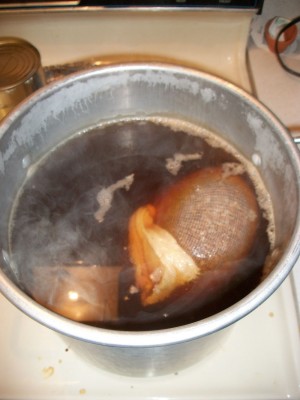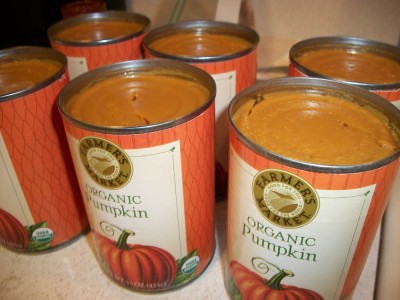When I first started homebrewing, there’s a lot of terminologies and fancy words that are thrown around. If you spend enough time reading about homebrewing or hanging out with homebrewers, you’re going to hear about some things called adjuncts and flavorings.
I had no idea what they were other than that in some purist circles they’re considered a bad thing. I couldn’t understand why in Brewmasters Dogfish Head founder Sam Calagione was so proud of the adjuncts and flavor additivies that he used. However, the more I learned about them, the more I found myself in the camp with a lot of other brewers are from the camp that the right adjuncts and flavorings are a good thing.
What Is An Adjunct?
An adjunct is something fermentable that’s added during the brewing process that’s not one of the four main (and required) ingredients (barley, hops, water and yeast) to make beer. That’s why purists don’t like it, because it’s not one of those original ingredients. However, there’s a lot of reasons why an adjunct can be a good thing. It can add a specific taste, aroma or even feel to beer. Some styles of modern beers can’t be made without adjuncts.
If you’re brewed up a batch of homemade beer, then you’ve already used adjuncts. One of the most common adjunct is the priming sugar that you used to carbonate your beer.
Other commons adjuncts include:
Unmalted grains such as barley, oats rye and wheat. Among their benefits is that they can add body to the beer or certain aromas.
Another common type of adjunct is sweeteners like honey, maple syrup and molasses. The yeast do ferment the sugars in each of these ingredients but their main purpose is for flavor.
Adjuncts get a bad name because a lot of macro breweries used cheap ingredients like corn and rice to save on costs. But used in the right way, adjuncts can go a long way to making a better.
Flavoring is similar to the adjuncts in that it’s not a required ingredient to make beer, but the difference that it’s not fermentable. Flavorings of course add flavor, but they can also add an aroma or sometimes improve the body of a beer.
Flavorings fall into three main sections. There’s the fruit and vegetables, the herbs and spices and the other. Other would flavorings that don’t really fall into the other two categories.
Once you really get into homebrewing, you’re going to find that you’re using all sorts of herbs and spices. Some of the more common spices are coriander in Belgian white beers, cinnamon, nutmeg and allspice in pumpkin beers. The list can go on and on. There’s even beers that are made with chilli powder.
Every season seems to have it’s own fruit or vegetable beer. Spring has it’s apricot beers, summer has it’s refreshing strawberry wheat beers, my favorite in the fall is pumpkin beers and a nice, strong cherry porter can keep you warm during winter. Of course, you don’t have to limit yourself to using specific fruit and vegetables in just their traditional seasons. That’s half of the fun with homebrewing.
Then a few of my favorite homebrewing ingredients fall into the miscellaneous category like chocolate and coffee. Anytime I can get away with it, I’m going to add chocolate, coffee or both to a beer.
So that’s adjuncts and flavorings. Next time you hear someone throwing around those terms or read about them in a book, you’ll know what they’re talking about.
Make sure you follow Passion For The Pint on Facebook or Twitter so that you can keep expanding your homebrewing knowledge. If you’re looking to take it a step further, there’s an online course for homebrewing called the HomeBrew Academy. I’ll be reviewing it later this month.

